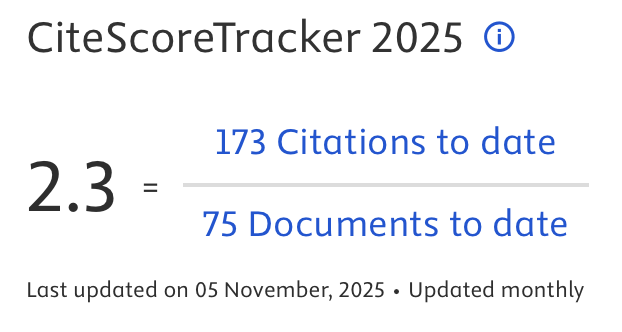TAFSIR PROGRESIF ATAS KISAH-KISAH DALAM AL-QUR’AN KARYA EKO PRASETYO
DOI:
https://doi.org/10.14421/qh.2018.1901-05Keywords:
Eko Prasetyo, Progressive Interpretations, Qissah, al-Qur’anAbstract
Kitab Pembebasan is Eko Prasetyo’s first work in the field of interpretation contains the stories of prophets and friends in the Qur'an. For him, the stories of the prophets no longer have the power to change circumstances, then progressive logic brings Eko to an interpretation of the stories of the prophet to the surrounding social problems. When many commentators who interpret the Quran relate to the social community, then interpreting the Quran leads to social criticism being unique to discuss. So this paper is focused on discussing social criticism in the Book of Liberation. In this paper, there are indications of the content of social criticism Eko Prasetyo then grouped them into five fields, namely economics, religion, education, politics and society. Then explained based on the theme specifically. Then develop social criticism based on each theme. Among them is a criticism of the economic system of capitalism, interpretation of the meaning of Satan, tyranny, seditious and idolatrous, religious and financiers, criticism of Suharto and the New Order, the case of the murderous activist Salim deer. Also, Eko's other works were reviewed to develop his criticisms. The interpretation for Eko through the Book of Liberation is the contextualization of the problems that occur around him, Eko does not care about the interpretation of the interpretation, because for Eko, the Qur'an is a book of movements that must be practiced.
Keyword: Eko Prasetyo, Progressive Interpretations, Qissah, al-Qur’an
 Abstract viewed: 871 times
|
Abstract viewed: 871 times
|
 PDF downloaded = 2065 times
PDF downloaded = 2065 times
References
Bukhari, Muhammad bin Ismail Shahih Bukhari. Riyadh: Dar al-Salam, 1997.
MD (ed.), Moh. Mahfud. Kritik Sosial dalam Wacana Pembangunan. Yogyakarta:
UII Press, 1997.
M. Nur Kholis Setiawan, Akar-akar Pemikiran Progresif dalam Kajian al-
Qur’an. Yogyakarta: Elsaq Press, 2008.
Muslim, Abul Husain. Shahih Muslim. Riyadh: Dar al-Salam, 2000.
Mustaqim, Abdul. Pergeseran Epistemologi Tafsir. Yogyakarta: Pustaka Pelajar,
Pradana Boy ZTF, Para Pembela Islam: Pertarungan Konservatif dan Progresif
di Tubuh Muhammadiyah (Jakarta: Gramata Publishing, 2009.
Prasetyo, Eko Kitab Pembebasan: Tafsir progresif Atas Kisah-Kisah Dalam Al-
Qur’an. Malang: Beranda, 2016.
Prasetyo, Eko. Islam Kiri: Jalan Menuju Revolusi Sosial. Yogyakarta: Resist
Book, 2014.
Prasetyo, Eko Kisah-kisah Pembebasan dalam Al-Qur’an. Yogyakarta: Resist
Book, 2012.
Qattān, Manna Khalil. Studi Ilmu-ilmu Qur’an. Bogor: Pustaka Litera Antar Nusa,
Ridho, Muhammad. Islam: Tafsir dan Dinamika Sosial, Ikhtiar Memaknai Ajaran
Islam. Yogyakarta: Teras, 2010.
Suparno, Basuki Agus. Reformasi Jatuhnya Soeharto. Jakarta: Kompas, 2012.
Sya’rawi, Muhammad Mutawalli. Islam Di Antara Kapitalisme dan Komunisme.
Jakarta: Gema Insani Press, 1992.
Downloads
Published
How to Cite
Issue
Section
License
Publishing your paper with Jurnal Studi Ilmu-ilmu al-Qur'an dan Hadis means that the author or authors retain the copyright in the paper. Jurnal Studi Ilmu-ilmu al-Qur'an dan Hadis uses license CC-BY-NC-ND or an equivalent license as the optimal license for the publication, distribution, use, and reuse of scholarly works. This license permits anyone to copy and redistribute the material in any medium or format and must give appropriate credit, provide a link to the license, and indicate if changes were made. If you remix, translate, transform or build upon the material you may use it for private use only and not for distribution. Jurnal Studi Ilmu-ilmu al-Qur'an dan Hadis granted an exclusive non-commercial reuse license by the author(s), but the author(s) are able to put the paper onto a website, distribute it to colleagues, give it to students, use it in your thesis, etc, so long as the use is not directed at a commercial advantage or toward private monetary gain. The author(s) can reuse the figures and tables and other information contained in their paper published by Jurnal Studi Ilmu-ilmu al-Qur'an dan Hadis in future papers or work without having to ask anyone for permission, provided that the figures, tables, or other information that is included in the new paper or work properly references the published paper as the source of the figures, tables or other information, and the new paper or work is not direct at a private monetary gain or commercial advantage.
Jurnal Studi Ilmu-ilmu al-Qur'an dan Hadis journal Open Acces articles are distrubuted under the Creative Commons Attribution-NonCommercial-NoDerivatives 4.0 International (CC BY-NC-ND 4.0). Article can be read, copy and redistribute the material ini any medium or format under the following conditions:
Attribution — You must give appropriate credit, provide a link to the license, and indicate if changes were made. You may do so in any reasonable manner, but not in any way that suggests the licensor endorses you or your use.
NonCommercial — You may not use the material for commercial purposes.
NoDerivatives — If you remix, transform, or build upon the material, you may not distribute the modified material.









